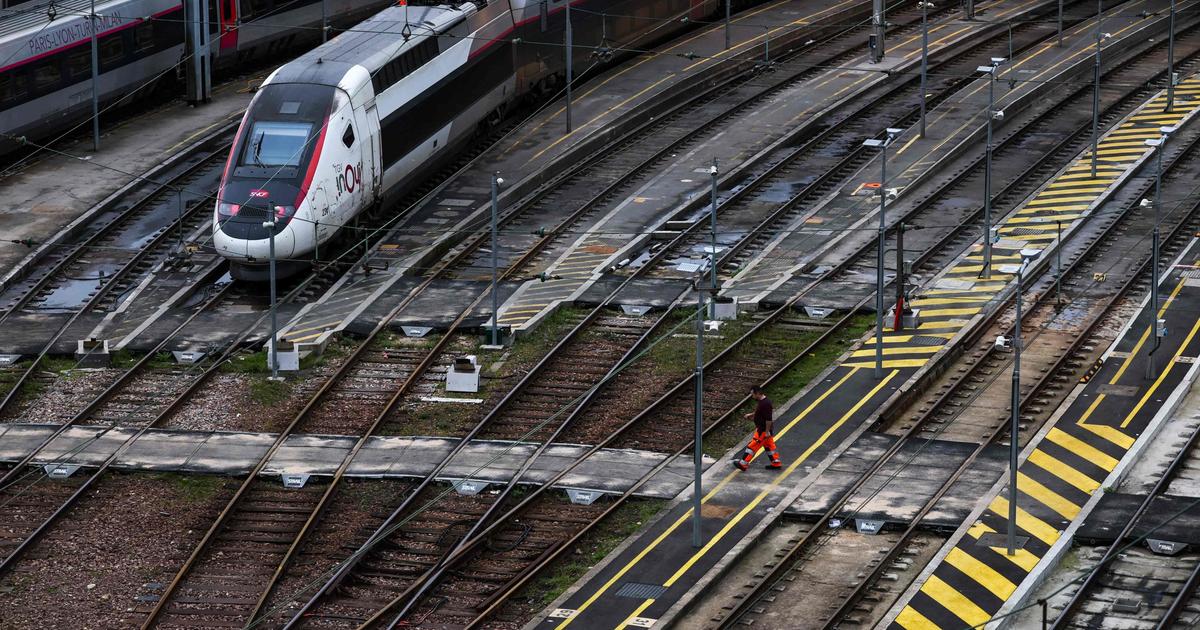Another strike.
From this Friday and until Sunday, SNCF controllers are called to strike to sanction commitments
“not kept”
by the railway company.
The movement, which promises to be very popular, is expected to cause numerous disruptions throughout the weekend.
Only one in two trains will run on average on Saturday and Sunday on the national network, a hard blow during this school holiday period.
“Many French people are prohibited from going on vacation or returning in peaceful conditions
,” admitted the director of TGV-Intercités Alain Krakovitch this Friday, before presenting his
“apologies”
on behalf of the SNCF.
It is an understatement to say that the company is used to
“mea culpa”
.
Since 1947, not a single year has passed without a strike movement penalizing rail transport users.
Perhaps anxious to deny an alleged
“strike culture”
within the company, the SNCF has decided to make public the data relating to the various social movements it has experienced in its history.
Accessible to all, these statistics make it possible to quantify the number of
“lost days” –
the cumulative number of days not worked by agents due to strike – since 1947.
1.2 strike days on average per year since 1980
It is clear that the results do not really speak in favor of the SNCF.
From the aftermath of World War II to the present day, the total number of
“lost days”
has reached 30 million days.
Even if we limit ourselves to the last twenty years, the calculation is striking: since the beginning of the 2000s, the walkout has caused SNCF agents to lose more than 5 million working days.
Certain years, however, stand out for the intensity of their social movements.
Unsurprisingly, 1968 remains the vintage of all records, with nearly 4.6 million days not worked.
That is 14 days of strike on average for some 320,000 SNCF agents.
Then comes 1995, the year of the strike against the “Juppé” pension reform, which paralyzed rail traffic for around twenty days and caused railway workers to lose a little over a million working days.
The social movements of the 2000s are not to be outdone, despite a lower number of non-working days than in the past: 572,000 in 2010, the year of mobilization against the reorganization of freight and 394,300 in 2019, during the famous Christmas strike in response to pension reform.
Does this mean that railway workers have become less demanding over the years?
Not really.
It is in reality the collapse of the SNCF workforce which explains this illusionary decline.
From 1947 to 2022, the national company lost nearly 70% of its agents.
Since 1980, more than 40% of railway workers have disappeared from French rail.
It is therefore more reliable to stick to the number of days lost compared to the number of agents.
From 1945 to 1980, a railway worker struck 1.7 days per year on average.
Since the 1980s, the quota of days off work is only 1.2 days... But this average hides large disparities depending on the trade.
Many strike movements have remained poorly attended in the history of the SNCF and have not in reality greatly affected users.
Conversely, certain calls for strikes have largely paralyzed the network due to the over-representation of drivers, switchers and even controllers among the strikers.
However, the joint presence of these three agents is essential to allow the movement of a train.
This is precisely why the dissatisfaction of controllers risks causing the cancellation of a very large number of trips this weekend.
The heavy bill of the strike
It goes without saying that these repeated walkouts have serious consequences for the SNCF.
Firstly, on a financial level.
For example, the strike of December 2019, one of the longest in the history of French rail, cost SNCF more than 600 million euros.
Not surprising when we know that a
“very sustained strike”
causes the SNCF to lose around
“20 million euros”
per day, as Alain Krakovitch recalled this Friday.
The walkouts - and the salary increases agreed to put an end to them - also contribute to increasing the already staggering debt of the SNCF.
The refrain of social movements also contributes to damaging the image of the national carrier among the French.
To forget the vacation departures spoiled by the strike, the SNCF has no other choice but to put its hand in its pocket.
This weekend again, all travelers whose train is canceled will be able to exchange their ticket free of charge or obtain a refund.
SNCF will also offer a 50% discount valid on a future trip.
An
“exceptional commercial gesture”
which is intended to live up to the inconvenience caused during this school holiday period.
A way to calm users too.
Because SNCF customers have reason to complain: in addition to paying for their increasingly expensive tickets, they are also increasingly contributing to the financing of the company, according to public finance specialist François Ecalle.
Investments in rail, retirement of railway workers, operation of trains... In total, the SNCF will have cost taxpayers 20 billion euros in 2022, or 1.5 billion more than in 2021. Enough to still exceed a little plus the passengers remaining at the dock...

